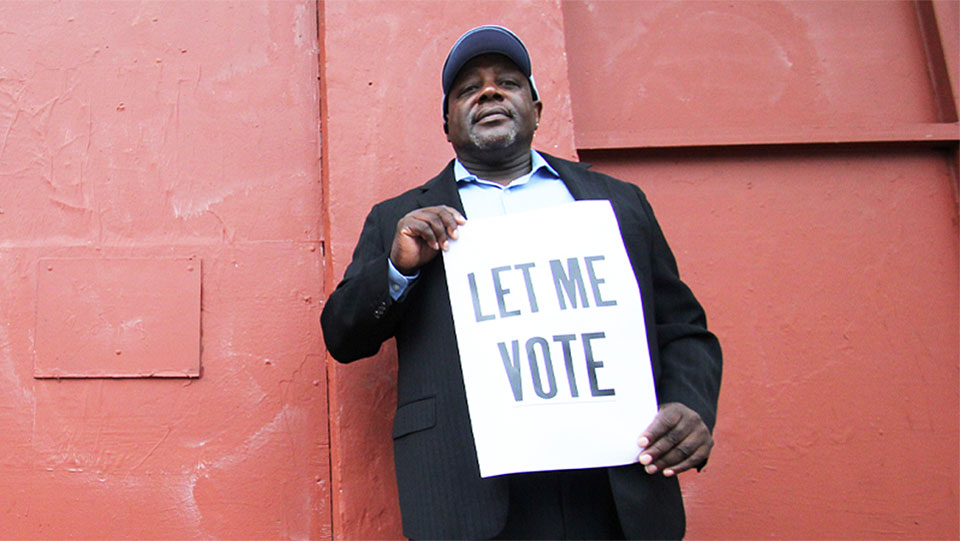
Following approval by the California state Senate June 24, two constitutional amendments the California Legislative Black Caucus has designated as priority measures will now appear on the ballot Nov. 3.
Voter passage of Assembly Constitutional Amendment 5, The California Act for Economic Prosperity, would again allow consideration of race, gender, and ethnic diversity in public university admissions and state contracts, by repealing Proposition 209, passed by voters in 1996, which banned affirmative action.
The measure, authored by Black Caucus chair Assemblymember Shirley Weber, D-San Diego, passed by supermajorities in both the Assembly and state Senate. After the Senate vote, Weber noted that Prop. 209 “has cost women and minority-owned businesses $1.1 billion each year, perpetuated a wage gap wherein women make 80 cents on every dollar made by men, and allowed discriminatory hiring practices to continue unhindered … It’s time to give voters a chance to right this wrong.”
Also passed by a supermajority was ACA 6, “Free the Vote,” authored by Assemblymember Kevin McCarty, D-Sacramento. It would restore voting rights to people serving a parole sentence, eliminating what McCarty has called “a relic of Jim Crow laws.” After the Senate approved the measure, McCarty said it “gives Californians the chance to right a wrong and restore voting rights for a marginalized community and people of color.”
Though both measures needed to pass each house of the state legislature by a two-thirds majority, voters can approve them with a simple majority in November.
Weber’s ACA 5 drew a vigorous two-hour debate before passing in the Senate by a 30-10 vote.
“We have to admit that (racism) is real,” Weber told her fellow lawmakers. “It is there, it is present and affects not just the lives of African Americans but everyone in this country. As a legislature, we have a responsibility to figure out every way we possibly can, to impact that.
“Removing 209 would not solve all the problems,” she said. “But it’s one of the many tools we have to say California is a land of great opportunity.”
Weber also noted that if ACA 5 passes, California will be joining 42 other states that allow race or gender to be considered in awarding state contracts and accepting students into the state’s public colleges and universities.
Caucus vice chair Assemblymember Steven Bradford, D-Gardena, declared, “We’ve had 24 years of failure because of Prop. 209,” with far fewer women and minorities in corporate leadership and far fewer African Americans and Latinos in college. “This affords us the opportunity to … remove the barriers to education, the barriers to opportunity.”
Bradford challenged his white colleagues: “I bet you can count on one hand the number of times you’ve walked into a room, walked into an organization, and you’re the only one who looks like you … I know about discrimination; I live it every day.”
In the end, the vote was almost entirely along party lines, with one Republican state senator joining all the Senate Democrats in approving ACA 5.
According to the Opportunity for All Coalition, which is championing the measure, the effort to overturn Prop. 209 has been endorsed by over 500 organizations and leaders, including a broad range of Democrats in the U.S. Congress, California Governor Gavin Newsom, and leading members of his administration, and mayors and local legislators throughout the state.
Among the long list of organizational endorsers: the ACLU of California, Equal Justice Society, California Labor Federation, and many member unions, the University of California Regents and the UC Student Association, Chinese for Affirmative Action, the Dolores Huerta Foundation and the California National Organization for Women.
Some Chinese American organizations have expressed concern that repealing Prop. 209 could lead to quotas on Asian American students in the UC system.
But earlier this week, as the California Asian Pacific Islander Legislative Caucus voted to support ACA 5, its chair, Assemblymember David Chiu, D-San Francisco, pointed out that universities practicing affirmative action have seen greater gains in Asian American enrollment than schools that do not, and the UC system, including UC Berkeley and UCLA, has seen a drop in Asian Pacific Islander admissions under Prop. 209. He also noted that the U.S. Supreme Court banned the use of quotas in university admissions over 40 years ago, in the 1978 Bakke case.
“While surveys show a strong majority of our Asian American communities support bringing back affirmative action,” Chiu said, “we know not all of our communities are yet convinced. We look forward to engaging with the diversity of our API communities to build consensus on how we move everyone forward to truly make California a state of equal opportunity for all.”
If ACA 6, “Free the Vote,” is passed by voters in November, more than 40,000 formerly incarcerated people would regain the ability to vote before they finish their parole, and California would join 18 states and the District of Columbia, where parolees can vote.
In two of those states, Maine and Vermont, both parolees and currently incarcerated people can vote, according to the National Conference of State Legislatures. On the other hand, 21 states bar both parolees and incarcerated people from voting, and 11 states say formerly incarcerated people are barred from voting “indefinitely.”












Comments